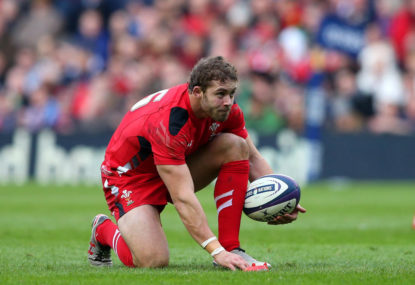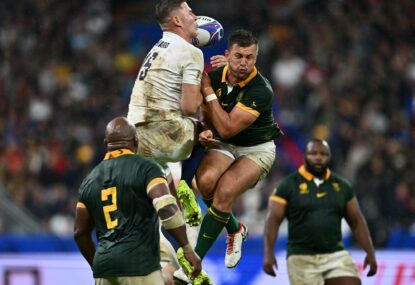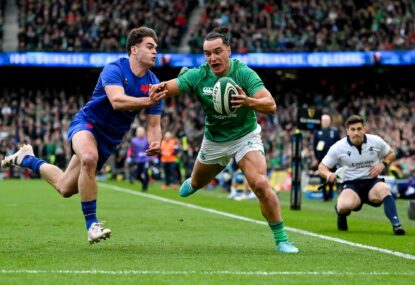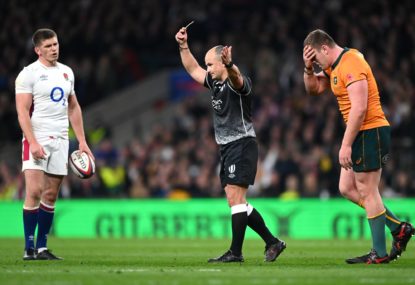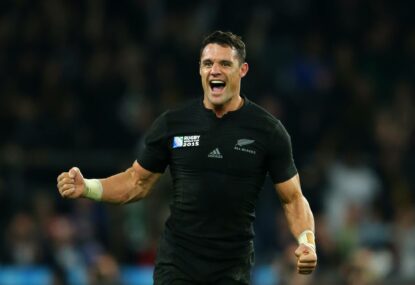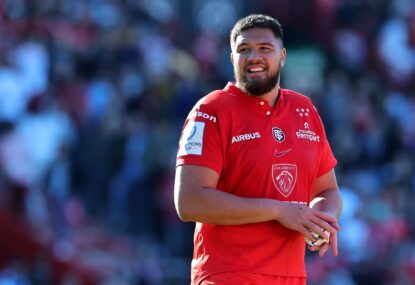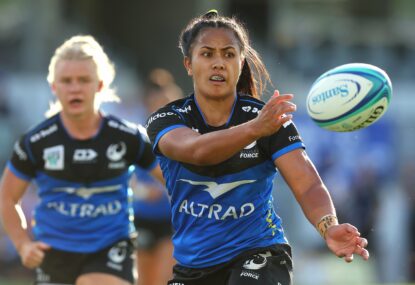What. A. Game. Both teams rose to the occasion, and showcased brilliant endeavour in attack and defence. This was the hardest England and been pushed and the best Wales have played since 2014.
England have been in the papers of late, with writers going on about the streak, debating whether they are as good as the All Blacks.
While they have improved massively in terms of fitness and doing the basics well, England do not compare to the All Blacks in their pomp. They are, however, starting to show two key traits that are usually associated with the way the All Blacks play.
First is the self-belief they have to play the full 80, back their fitness, and feel they will win the game.
Second is making the correct decisions in high-pressure moments.
While they are now fit, and do finish teams off in the last 20, they are not as fit as the All Blacks, nor do they maximise their chances to the extreme in terms of their clinical finishing. While they strung some very good phases together against the Welsh, they missed crucial opportunities.
In the first 20, England butchered clear overlaps that led to run in tries, the culprits Mike Brown and Owen Farrell.
In the last 20, when England were going forward fast and very quickly, they were running the opposition of their feet. Wales were blowing and England just kept coming, but were turned over five times on the opposition try line over these 20 minutes.
The England of old would’ve capitulated, would’ve grown frustrated, and started forcing passages of play, yet England kept calm, and kept coming, trusting their processes and sticking to their systems – much like the All Blacks did in 2013 against Ireland. It won them the game, and England’s trust in each other to keep going for the full 80 is a massive improvement.
This was also combined with excellent decision making, under huge amounts of pressure. Farrell’s choice to take the three points in the last ten was huge, as was Wales’ decision not to take the points on offer at the end of the first half.
Leigh Halfpenny and Farrell are the two best goal kickers in the world. Points in a game like this are key, and when Farrell elected to go for the posts, I was relieved. Again, it comes down to the place where the England side is mentally. Bar the All Blacks, they would back themselves against any team in the world, such is the effect of winning.
England regathered after the three points with a scrum penalty, launched a kick into the half, and launched their final attack, taking the ball to the line again. Yet, as had happened so often, they were turned over, and with the charge down of Kyle Sinckler, Gareth Davies was forced to field his kick infield, instead of touch, which his forwards would’ve been praying for.
It was then caught, and ran by George Ford and Farrell, who saw the space on the left, and attacked it mercilessly with two sublime passes. We know what happened next.
England defended a five-point lead for the remaining four minutes, and won the game. It was a relief for this Englishman – although, in the middle of a Welsh pub, I was unable to express my joy.
The game came down to the wire, and good decision-making won it.
This match cemented Ford and Farrell. They are the creative fulcrum by which England can play with width and tempo, which had the Welsh defence all over the place.
They also allow England to play in a variety of ways. Prior to this Six Nations, Englad traditionally kept within the 15-metre lines, and only shifted out to the outside channels when all defenders have been committed. This is no longer happening, and they are working the blindside right to the edge, then coming back to the opposite wing on the openside. They are able to do this, because of their 10-12 axis.
When Wales defend in the wide channels, they left only a few numbers on the blindside, on the provision that the attacking team will exploit the openside on the next phase and therefore number up.
That’s why I like the dual playmaker strategy better. Since Eddie Jones took over, England’s 10 works the blind.
With a playmaker on either side of the ruck, Wales couldn’t settle into their defensive pattern, as they couldn’t shift players over from the blind to the open.
Also, Ford is able to take the ball flat, and then pass behind a decoy pod to another playmaker, who can then make a judgement call with multiple options, which kept the defence guessing.
Dan Biggar can replicate the same, but he doesn’t take the ball flat, and while Scott Williams had a good game, he didn’t make himself known as a distributor to the level of Ford and Farrell. Biggar had a good game, but as a creative force he is not the same as Sam Davies, who, with his greater range of distribution, could’ve caused England more trouble.
While Wales made breaks, many were against an unstructured defence, and Alex King and Rob Howley must be given credit for this. It wasn’t slick, but when the ball was turned over outside the Welsh 22, they passed and ran it to dangerous effect.
But they must be held accountable for their consistent re-enforcement of outdated tactics with the ball in hand, kicking strategy, and choice of substitutions.
Jones’ subs were carefully placed, at times when England needed impact. Substitutions can either wrest momentum back to the opposition, or enhance it on your end. Jones deployed Ford and James Haskell at 46 minutes, based on the game situation, rather than being pre-planned, and made a sizeable difference.
Meanwhile, Howley brought off Ross Moriarty – who was having a talismanic performance for Wales, smashing anything that moved – for Taulupe Faletau, who hadn’t played since Christmas.
It was bizarre. Moriarty wasn’t tiring, and had the measure of the English back row all night. His departure enhanced England’s ball-carrying prowess, which led to England going further and further forward.
This put the Welsh defence under pressure, and led to the next issue, which ultimately cost Wales the game.
The Welsh coaches, for all their self-confessed expansionist policies, fall back on ‘Warrenball’ too often, and one of the biggest factors of that play is backing your defence and therefore not kicking to touch. They did this against England, kicking to the opposition back three all game.
Historically, Wales have been the Northern Hemisphere’s fittest team, but this has changed. In the past, they wanted the game high-tempo; they didn’t want the opposition to rest with a set piece, so trusted their kick chase and turned the ball over with brutal defence.
The problem is, there was no kick chase against England, so instead of their fitness seeing them through, they handed the ball back to a fitter team, with greater attacking nous.
Howley can be blamed for the subs, but for all his bluster of an improved gameplan, the pillars of Warrenball still exist, and it almost seems like you must stick to them if you want a place in the team.
Maybe it’s because Howley’s been in it too long, and doesn’t know how to coach the modern game. Maybe a second playmaker and creative 10 is a threat he doesn’t know how to handle, and as such sticks with what he knows. I can’t be sure.
Whatever the case, it was great rugby, and in terms of excitement, passion and energy, could be the game of the tournament.





























































































